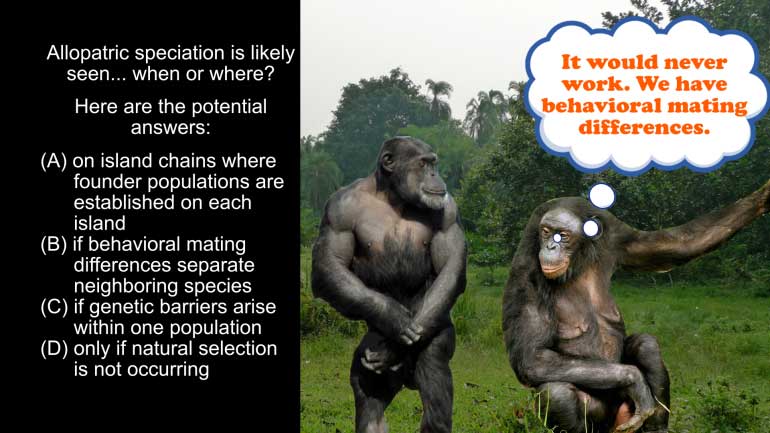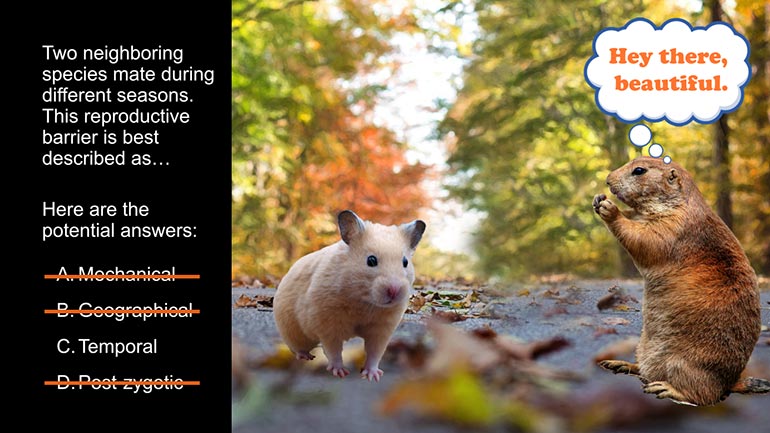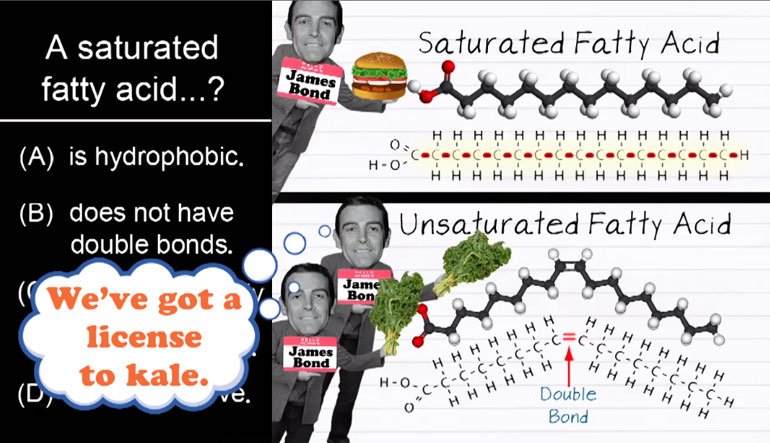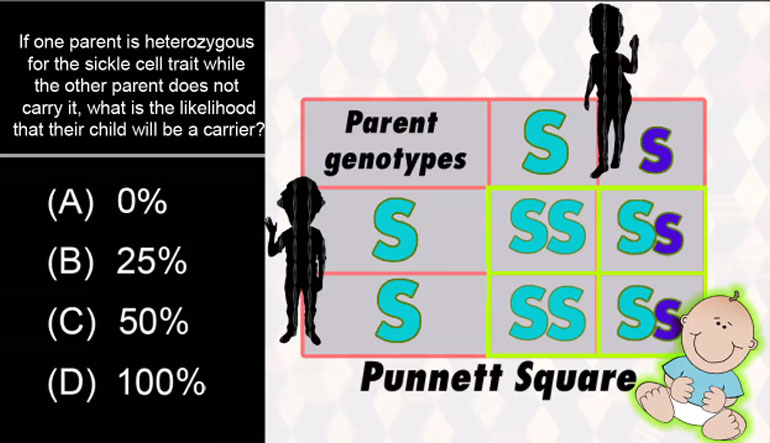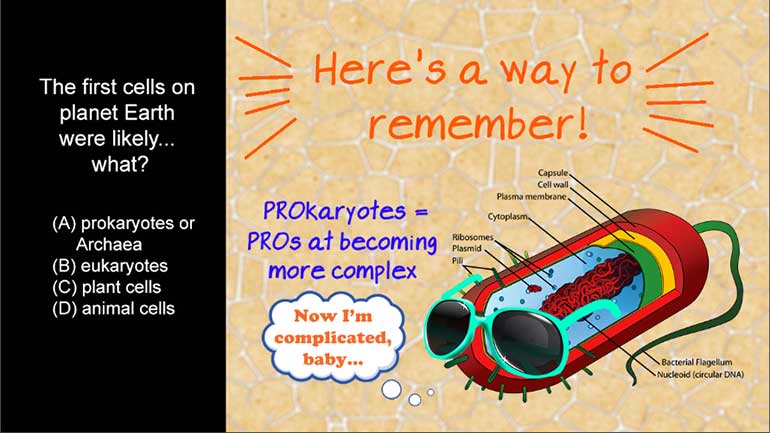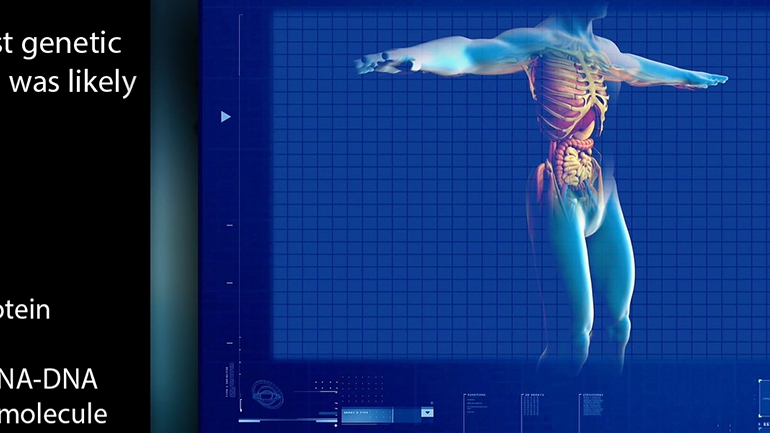ShmoopTube
Where Monty Python meets your 10th grade teacher.
Search Thousands of Shmoop Videos
Reproductive isolation Videos 2 videos
AP Biology 4.1 Evolution. When or where is allopatric speciation likely seen?
AP Biology 3.5 Evolution. What is the reproductive barrier in the video best described as?
AP Biology 3.5 Evolution 20 Views
Share It!
Description:
AP Biology 3.5 Evolution. What is the reproductive barrier in the video best described as?
Transcript
- 00:04
Here’s your Shmoop du jour, brought to you by
- 00:06
barriers, the sworn enemy of Ronald Reagan. [Raegan smashing down a barrier and Mikhail Gorbachev appears]
- 00:10
Check out the following:
- 00:11
Two neighboring species mate during different seasons.
- 00:15
This reproductive barrier is best described as….what?
Full Transcript
- 00:18
And here are the potential answers: Many species are seasonal breeders based on
- 00:28
favorable conditions, such as abundant food and water supplies.
- 00:31
Many species’ wives wish they were romantic breeders who would bring home flowers and [Rhino wife wishing for more romantic Rhino husband]
- 00:35
chocolates once in a while.
- 00:37
Species like ring-tailed lemurs, horses, hamsters, and groundhogs prefer breeding in spring, [two groundhogs together in a forest]
- 00:42
while sheep, goats, elk, and mice prefer the fall.
- 00:46
Rabbits, however, pay no attention to the calendar. [lots of rabbits together]
- 00:49
Though is this seasonal reproductive barrier best described as “mechanical”?
- 00:53
Well, “mechanical” refers to the fact that some species are unable to mate with [A snake and a turtle side by side]
- 00:58
other species because…well, physically they just can’t.
- 01:02
The mechanics of the process are incompatible, which means A is incorrect.
- 01:07
How about B?
- 01:08
Is seasonal mating a geographical reproductive barrier?
- 01:11
Let’s say a body of water separates one herd of hippos from another. [Two hippo's either side of a body of water]
- 01:16
While that would be a darn shame, it wouldn’t have anything to do with the seasons.
- 01:20
So B isn’t our answer, either. [Hippo entering the ocean]
- 01:22
Let’s look at answer “D”.
- 01:24
A hybrid zygote is formed when no barriers exist to interspecies mating. [A zebra and a horse together and a hybrid of the two appears]
- 01:30
Since this is a pretty big no-no in nature, a post-zygotic reproductive barrier kicks
- 01:36
in to insure that the hybrid is infertile and won’t reproduce. [Hybrid of zebra and horse disappears]
- 01:40
Since “D” is all about isolation mechanisms, we can eliminate it as our correct answer.
- 01:46
That leaves us just with “C,” temporal.
- 01:48
Temporal separation is defined as a mating barrier achieved by differences in the timing
- 01:54
of species’ mating seasons.
- 01:58
Looks like C is our right answer.
- 01:59
Now will someone please get that poor rhino a box of chocolates…? [Two rhinos sniffing for chocolates]
Related Videos
AP Biology: Biological System Interactions Drill 1, Problem 1. Complete the sentence about a saturated fatty acid.
AP Biology: Essential Life Process Information Drill 1, Problem 1. If one parent is heterozygous for the sickle cell trait while the other par...
AP Biology: Evolution Drives the Diversity and Unity of Life Drill 1, Problem 1. The first cells on planet Earth were likely what?
AP Biology: Free Energy and Molecular Building Blocks Drill 1, Problem 1. Which statement incorrectly describes the properties of water?
AP® Biology: Evolution Drives the Diversity and Unity of Life Drill 1, Problem 2. What was likely the first genetic material?
